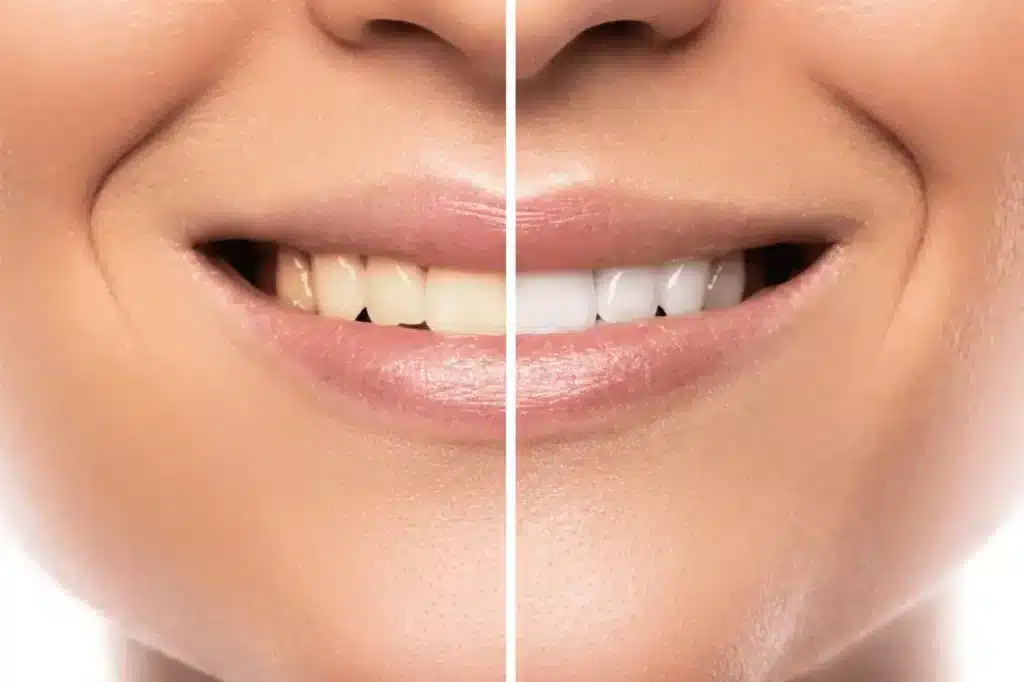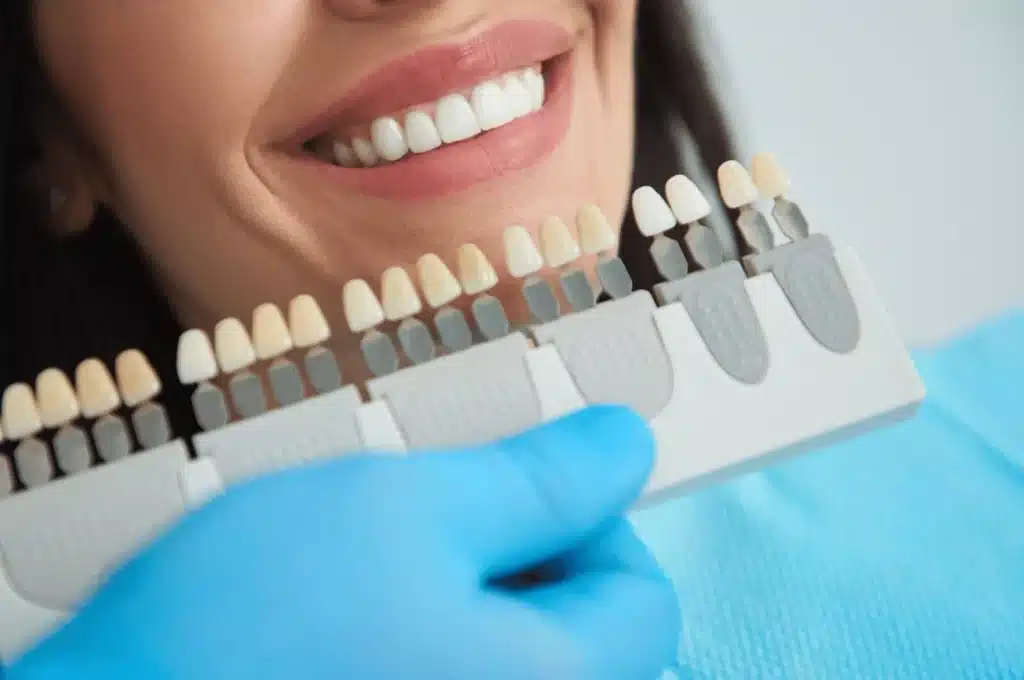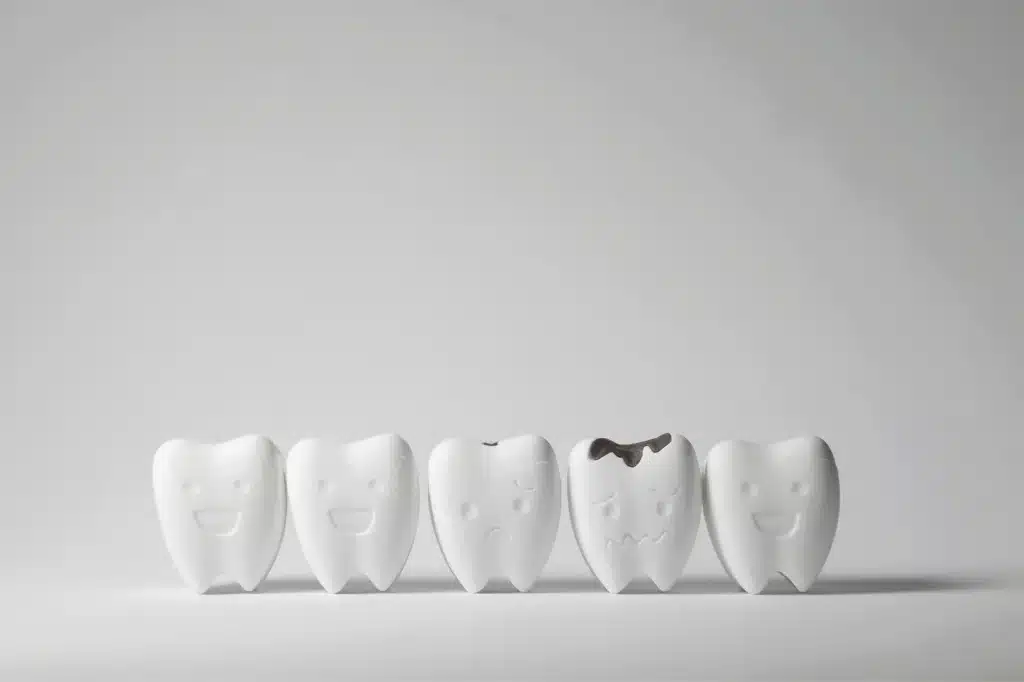Are you aware that certain habits damage your teeth and cause sensitivity? Read more to know how tooth erosion impacts your oral health.
What is Tooth Erosion?
Tooth erosion happens when the tough outer layer of your teeth, called enamel, wears down. This can occur because of things like chemicals or too much pressure. When your enamel gets thinner, your teeth become more sensitive to things like stains, and they’re easier to get cavities in. Some other names for tooth erosion are enamel erosion and dental erosion.
If tooth erosion isn’t taken care of, it keeps wearing away your teeth’s layers, like dentin and tooth pulp. The good news is that this process happens slowly, and if you’ve already lost some enamel, there are ways to stop it from worsening.
How Common is Tooth Erosion?
Tooth erosion isn’t particular. It can happen to anyone. It’s not just for grown-ups; it affects almost 50% of baby teeth and up to 45% of adult teeth. So, it’s pretty common, and we all need to be aware of it to keep our smiles healthy.
Symptoms
The signs of tooth erosion can differ from person to person. Early on, you might notice:
- Teeth Sensitivity: Your teeth may become more sensitive, especially to hot or cold temperatures.
- Tooth Discoloration: Changes in the color of your teeth may happen.
- Chipped Teeth: The edges of your teeth might start to chip.
- Pitting on Teeth Surfaces: Small dents or pits may appear on the surfaces of your teeth.
As enamel erosion progresses and affects more layers of your teeth, you may start feeling pain. As it gets closer to the nerves in your tooth pulp, the discomfort can increase.
Causes
Several things can lead to tooth erosion. Possible reasons include:
Eating Sugary, Starchy, or Acidic Foods and Drinks: Consuming things like candy, soda, or acidic fruits can contribute to erosion.
Brushing Too Hard: Being too aggressive with your toothbrush, especially near the gum line, can wear away enamel.
Teeth Grinding (Bruxism): Grinding your teeth can wear down the enamel over time.
GERD (Chronic Acid Reflux): Stomach acid entering your mouth can erode teeth.
Dry Mouth (Xerostomia): Not having enough saliva to protect your teeth can be a factor.
Long-Term Use of Certain Medications: Some medications, like antihistamines, can reduce saliva production.
Genetic Disorders: Conditions like enamel hypoplasia, where you’re born with little enamel, can contribute.
Bulimia Nervosa: This condition, involving stomach acid exposure, can harm teeth.
Complications
Tooth erosion happens bit by bit, but if you don’t do something about it, it can cause some issues:
Yellow or Stained Teeth: Your teeth might start looking yellow or stained, affecting your smile.

Tooth Decay: Erosion makes your teeth more prone to getting cavities, which are little holes in your teeth.
Rough or Jagged Edges: The edges of your teeth can become rough or uneven, making them feel strange in your mouth.
Broken or Cracked Teeth: In severe cases, erosion can break or crack your teeth, causing pain and more dental problems.
Diagnosing Tooth Erosion
A dentist can determine if you have tooth erosion during a regular dental checkup. They’ll look for signs like wear and tear, changes in texture, and pits on your teeth. Sometimes, they might take X-rays to see how much damage has happened.
Treatment
How dentists take care of tooth erosion depends on how serious it is. For the early stages, the most common treatment is using fluoride. Fluoride helps make your enamel stronger and stops erosion from getting worse. But it can’t bring back enamel once it’s gone.
If your tooth erosion is more advanced, your dentist might suggest:
- Dental Bonding: They use a unique material to fix and protect your teeth.
- Veneers: These are like covers for your teeth, making them look better and stronger.
- Dental Crowns: Sometimes, a cap is put on your tooth to keep it safe and strong.

Prevention
Stopping enamel erosion is crucial because once it’s gone, it doesn’t come back. Here are some simple steps to lower your risk:
Use Fluoride Toothpaste:
Pick toothpaste with fluoride to make your enamel stronger.
Brush Your Teeth Regularly:
Brush at least twice a day to keep your teeth clean and healthy.
Floss Every Day:
Clean between your teeth once a day with floss to remove any hidden food.
Watch What You Eat and Drink:
Cut back on sugary and acidic foods and drinks to protect your enamel.
Rinse Your Mouth:
Swish water around your mouth between snacks and meals to wash away acids.
Time Your Brushing:
Wait at least 30 minutes after eating before you brush. This gives your saliva time to help your mouth recover.
Nighttime Habits:
Wait to eat right before bedtime to give your teeth a break.
Limit Alcohol Drinks:
Cut down on drinks with alcohol, as they can be harsh on your enamel.
Chew Sugar-Free Gum:
After meals, chew sugar-free gum to make more saliva, which helps protect your teeth.
Visit Your Dentist:
Regularly see your dentist for checkups and cleanings to catch and treat any issues early.
Conclusion
Hope now you are aware of tooth erosion and its impact on oral health. Avoid unhealthy diet and adopt oral cleaning habits to prevent tooth erosion. Consult your dentist on instructions to improve teeth health.
Contact Dentalsway for more information on promoting oral health. We are here to help you.


